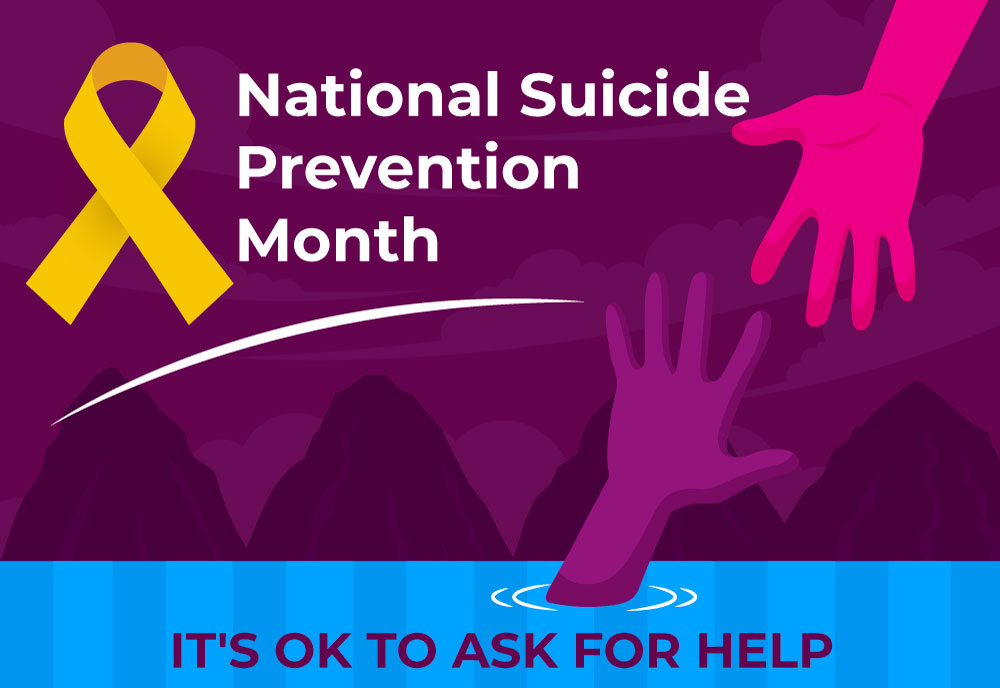
Each year, tens of thousands of Americans die by suicide, leaving behind their friends and family members to navigate the tragedy of loss.
According to the most recent statistics from the CDC, 48,344 Americans died by suicide in 2018, making it the 10th leading cause of death. Suicide was the second leading cause of death among individuals between the ages of 10 and 34, and the fourth leading cause of death among individuals between the ages of 35 and 54.
To put all of that into perspective, we can count one death by suicide in the U.S. every 12 minutes.
September is National Suicide Prevention Awareness Month — the perfect time to talk openly about this highly taboo and stigmatized topic.
Regardless of race, age or wealth, most people who die by suicide have a mental or emotional disorder. According to the national nonprofit Mental Health America, the most common underlying disorders are depression and bipolar (manic-depressive) disorder.
Because those suffering from severe mental illness are 12 times more likely to commit suicide, Interim, Inc., takes this issue to heart. Providing services and affordable housing to members of our community with mental illness helps in our mission to build more productive and satisfying lives.
According to the Anxiety and Depression Association of America, more than 18.6 percent of Americans suffer from anxiety and 6.7 percent live with depression. Considering the stigma that surrounds mental illness, those numbers most certainly are higher.
An ADAA study looked at the lives of more than 20,000 American adults, and the results were heartbreaking. It found that 46 percent of respondents felt alone either sometimes or always and that 43 percent felt that their relationships were meaningless. Even more devastating — 27 percent rarely or never felt as though there are people who really understand them.
There’s more that we all can do, and it starts with talking openly and honestly about the issue, and creating a culture of compassion.
No one should ever feel alone. We have to unite as allies and fight together. We don’t have to understand the specifics of someone’s journey to show empathy and love.
What can we do?
- We need to create a dialogue and have tough conversations. We have to educate ourselves and others about the facts and myths surrounding mental illness.
- No matter what you think you know, you can always learn more. Read current articles and dig through websites such as the National Alliance on Mental Illness. Keep up with new research and current initiatives.
- Recognize the warning signs. Maybe you have a friend who has been withdrawn lately or a sister who always seems nervous. Instead of brushing it off as moodiness or a quirk, get familiar with the warning signs associated with mental illness.
- If someone is in distress and says they are feeling overwhelmed, depressed or suicidal, take them seriously. Let them know you are paying attention, allow them to speak without interrupting, and offer reassurance.
- Volunteer your time, or donate to a cause. Crisis centers are understaffed and struggling to meet the demand of a growing number of people living with mental illness. Many people cannot even afford to seek the help they need.
At Interim, we welcome assistance from a supportive and caring community. Consider making a monthly gift, of any amount here. You can even choose the specific purpose for your donation. Or speak with your financial advisor, and ask him or her about including Interim in your will or estate plan. Your support will help us to create housing, healing and hope for adults with mental illness for the next generation.
Perhaps, together, we can help erase a stigma, and save precious lives of those who believe that theirs is no longer worth living.
For more information on Interim Inc., visit www.interiminc.org.




